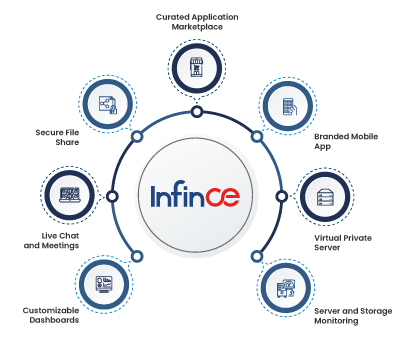Productivity leakage is a concern when it comes to remote work.
There’s still a debate on whether to work from home or the office. And to settle this debate, we focus on the productivity levels in each working environment. Productivity can only be measured with the amount of outcome generated by the employee.
It’s a common notion that employees are distracted or less productive when working remotely. A leader constantly worries about deadlines, deliverables, team relationships, employee creative levels, and upscaling employee skills that contribute to the company’s goals. However, a survey conducted by Work Trends Study states 87% of employees say they’re more productive when working remotely or in a hybrid setup.
But employees, on the other hand, might feel a communication gap and lack motivation when working remotely. Employers must ensure a connected workplace with effective and regular communication, feedback, and employee training. Focusing on these factors alone can help companies tackle the challenges of shifting work culture.
With remote work culture growing, particularly given recent trends with companies such as Facebook, Twitter, and SalesForce all announcing new policies for unlimited working from home, it is crucial to stop and see how this change in dynamics might impact the culture at your company. These nearly invisible changes directly impact employees’ happiness, yet data and analytics are lacking to see how remote and hybrid working impacts things.
Regarding productivity, managers who track it down on baseless metrics like working hours, putting a tracker system, and following up every hour, jinx the work culture. In this blog, let’s try to understand how remote work culture directly impacts productivity, internal relationships, creativity, and collaboration and if it is the future of work!
How is remote work culture impacting work productivity?
While working remotely may increase productivity, decrease stress, eliminate real-estate costs, and lower greenhouse emissions, it may cause several workplace problems. Remote work can hurt a company’s culture in several ways; a lack of social interaction may cause workplace relationships to suffer. For those individuals who strongly prefer working in-person, remote work culture’s de-engagement effects can be as severe as 17% lower productivity to 24% higher turnover.
We covered quite a bit of ground on building good communications and developing a positive corporate culture while working with distributed or remote teams. Developing company culture is not simply done for its own sake; it significantly impacts employee retention, satisfaction, and performance.
You need to understand that long-lasting remote working culture impacts how you are perceived by employees and customers, which will eventually define the success or development of the company. But considering the upside of having a remote work culture, especially the cost advantages, it is not smart to completely turn down this culture shift. The only way to still embrace this shift is by ensuring healthy employer-employee or company-staff relationships. And with technological advances today, nothing is impossible!
Read more: How to Keep Your Remote Teams Connected
How can a digital workplace platform help maintain productivity in remote work culture?
There’s no doubt that the COVID-19 pandemic has forced many businesses to rethink the way they operate. For many, this has meant implementing remote work policies for the first time.
While working remotely has many benefits, some challenges also need to be addressed to ensure that productivity levels are maintained.
One way to do this is by using a digital workplace platform. This platform can help facilitate communication and collaboration between team members and help set and track goals.
It can be tough to cultivate a remote work team culture, but it’s worth it. Here are a few tips to help get you started.
1. Defining team culture in a remote work setting
The best way to create a team culture in a remote work setting is to start with the team’s goals and values. Define what the team wants to achieve and how they want to work together. Once these are established, everyone on the team should be on the same page and understand the culture that is being created. It’s important to be clear about what is and isn’t acceptable behavior and have a set of guidelines that everyone can refer to. This will help ensure that the team culture is maintained and everyone is working towards the same goal.
No one can work in a vacuum. To be productive, people need to feel part of a team. A remote work setting can be a challenge when it comes to creating a team culture.
Here are a few tips to help you get started.
- Define your team’s values and culture: What are the things that are important to your team? What are your core values? Defining your values and culture will help you to create a common understanding among your team members. It will also help you to make decisions when it comes to things like hiring and firing.
- Establish rules and guidelines: To ensure everyone is on the same page, it’s important to establish some rules and guidelines. These can include how often team members should communicate, what type of communication is acceptable, and how to handle conflict.
- Encourage team bonding: Even though team members may be working remotely, it’s important to find ways to encourage team bonding. This can be done through team-building exercises, social media groups, or video chats.
- Celebrate successes: When your team achieves something great, take the time to celebrate! This can be done through team emails, social media posts, or even a team video call.
- Be transparent: When things go wrong, it’s important to be transparent with your team. This includes being honest about why something went wrong, what is being done to fix it, and what the consequences will be. Creating a strong team culture in a remote work setting can be challenging, but it’s definitely worth the effort. By following these tips, you’ll be well on your way to creating a team that is productive and happy.
2. Managing conflict in a remote work team culture
To manage conflict in a remote work team culture, it is important to understand the dynamics of the team and the culture in which it operates. Effective conflict management involves understanding the triggers for conflict, the communication channels available, and the team’s culture.
In a remote team, there may be a higher chance of misunderstandings due to the lack of communication or facial expressions. This can be exacerbated when team members are from different cultures. It is important to be aware of the potential triggers for conflict and to have effective communication channels in place.
When managing conflict in a remote team culture, it is important to be aware of cultural norms and expectations. In some cultures, it is acceptable to be more direct in communication, while in others, it is considered rude. It is important to be aware of these differences and to adjust communication styles as needed.
By understanding the dynamics of the team and the culture in which it operates, you can better manage conflict in a remote work team.
3. Encouraging team productivity in a remote work setting
To encourage productivity in a remote work setting, setting up some ground rules and expectations for team members is important. This includes clearly defined working hours, communication methods, and expectations for quality and output. It is also important to foster a positive team environment where team members are supportive of one another and are willing to help out when needed. By establishing a productive remote work environment, team members are more likely to be productive and meet deadlines.
Read more: Modernize and Simplify Your HR processes with a Digital Workplace Platform
How InfinCE makes an apt Digital workplace platform
InfinCE allows you to feel more in control of your data and your work-giving you a greater sense of mastery and purpose. It also helps you feel more connected to your team and organization, fostering a sense of community and collaboration matters.
InfinCE: Interactive, Data-Rich Dashboards to Boost Engagement
As an HR professional, you know that employee engagement is essential to organizational success. But what’s the best way to promote engagement within your organization?
One effective way is to use modern dashboard software to create custom dashboards for employees. By doing so, you can ensure that employees have the information they need to stay aligned with organizational goals.
Not only will this help to promote employee engagement, but it will also help to improve communication and collaboration within your organization. So if you’re looking for a way to boost employee engagement, consider using modern dashboard software to create custom dashboards for employees.
A Comprehensive Employee Directory
Looking for the contact information for your entire employee base? Look no further than the InfinCE comprehensive employee directory. This easy-to-use tool provides all the information you need to connect with your employees, no matter where they work. With multiple modes of collaboration available – live chat, one-on-one video calls, and meetings – your employees will stay connected and productive, even when working remotely.
More Productivity tools with InfinCE
Enhance your organization’s credibility with business emails. Store captured business data on documents, presentations, or spreadsheets in a private drive and ensured selective access through permissions and controls. Create events on InfinCE’s calendar, track tasks, and enhance your workforce efficiency easily!
Conclusion
Various stats have proved that remote work culture has contributed to productivity but, at the same time, has also increased work stress for employees. However, the advent of remote working tools has helped embrace the work culture shifts and continues to enable the company to empower the upside of remote work culture!
InfinCE, a powerful digital workplace platform, can help your company improve communication and collaboration and maintain transparency to embrace the remote work culture. It’s easy to use and can be customized to meet your needs. Start a free 30-day trial today and see how it helps your company!





